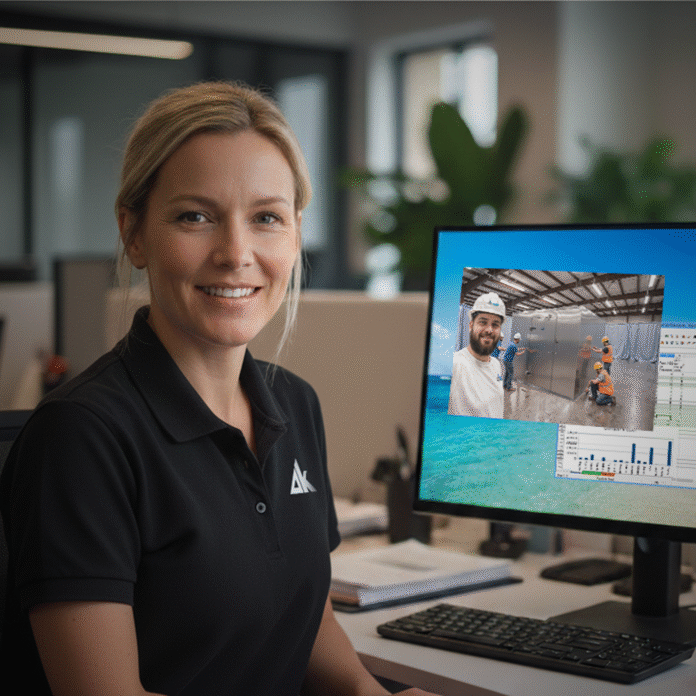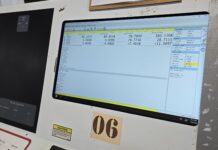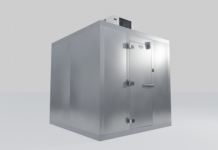
In an industry long defined by specifications, R-values, temperature ranges, and price per cubic foot, the conversation has shifted. As cold storage providers evolve to meet growing complexity, the focus now includes every stage of the customer experience, from installation and maintenance to education and sustainability planning. Today, customers expect service that extends far beyond delivery.
This evolution reflects the growing complexity of the markets cold storage now serves. Restaurants, hospitals, data centers, and logistics operators all depend on reliable cooling, but they also depend on something more elusive: partnership. Vendors should not only supply equipment but provide long-term peace of mind. The most successful manufacturers today aren’t merely product suppliers, they are service organizations in the truest sense.
A relationship redefined
The vendor-customer relationship in cold storage is in the midst of a significant transformation. What was once a largely transactional exchange, an order placed, a product delivered, a service technician called only when something broke, is evolving into a more collaborative partnership. Increasingly, customers are beginning to view their cold storage provider not just as a supplier, but as an essential ally responsible for performance, compliance, and efficiency across the entire lifecycle of their systems.
This shift is being driven by rising expectations on multiple fronts. In the foodservice sector, higher real estate costs are pushing operators to maximize smaller footprints with compact, high-performance systems that balance energy efficiency and reliability. In healthcare and pharmaceutical applications, the precision required to safeguard temperature-sensitive materials has raised the stakes of any equipment failure. And in logistics and data centers, where uptime is directly tied to revenue, the need for proactive support has never been greater.
As a result, expectations are climbing in real time. Customers now seek immediate answers to service questions, transparent communication around pricing, and expert guidance on navigating refrigerant transitions, global warming potential (GWP) regulations, and evolving energy codes. Forward-looking manufacturers are responding by redefining their role, moving beyond product delivery to embrace a holistic, service-first philosophy where engineering, education, and ongoing support are inseparable.
Education, transparency, and empowered service
A hallmark of a service-first model is education. Cold storage systems are no longer plug-and-play; they are highly engineered environments that must meet evolving energy and safety standards. To keep pace, leading manufacturers are investing in extensive training programs for both their internal service teams and their extended networks of certified installers.
These programs include everything from online courses on walk-in box installation to ongoing webinars covering refrigerant regulations and Department of Energy mandates. Many companies now require technicians to earn continuous education credits each year, mirroring practices in electrical and HVAC trades. By equipping installers and field technicians with current technical knowledge, vendors minimize downtime, reduce warranty claims, and create consistency across regions.
Transparency plays a parallel role in this education ecosystem. When price adjustments occur, whether due to raw material fluctuations or new refrigerant regulations, service-oriented manufacturers explain the “why” behind the change. They provide customers with clear breakdowns of the factors influencing cost, reinforcing the understanding that sustainability and compliance come with long-term value. That openness transforms what might have been perceived as an expense into an investment in reliability, safety, and reduced energy consumption.
Ultimately, the companies leading this transformation are building service teams that operate less like call centers and more like engineering partners. Empowered to act quickly and diagnose issues without bureaucratic delay, these teams deliver measurable reductions in downtime. The result is a new form of loyalty, one built not on price or product alone but on responsiveness and trust.
Engineering for complexity, sustainability, and speed
As cold storage expands into industries like healthcare, logistics, and data management, the requirements for precision and customization have intensified. A standard off-the-shelf solution no longer suffices. Specialized projects routinely require hurricane resistance for Florida hospitals, seismic reinforcement for California sites, advanced humidity and temperature controls for pharmaceutical storage, and anti-bacterial air purification for healthcare facilities- all delivered as custom engineering solutions.
This service-led engineering approach also aligns closely with broader ESG goals. Energy efficiency is now a baseline expectation, not a bonus. The use of low global-warming-potential refrigerants, insulated panels made from recyclable materials, and systems designed for lower thermal leakage all contribute to reduced carbon footprints. Some manufacturers are taking sustainability further by using renewable energy in production facilities and reclaiming refrigerants during decommissioning or retrofitting projects.
Sustainability also extends to longevity. A well built cold room is expected to last decades, but durability is only meaningful when supported by accessible maintenance. Readily available replacement parts, standardized hardware, and simplified control systems ensure that maintenance is efficient and downtime minimal. These efforts not only preserve customer operations but also prevent waste by extending the life of existing equipment.
Fast turnaround has become another defining feature of a modern service-first company. Through investments in CNC automation and modular panel construction, manufacturers can now produce custom walk-ins in a fraction of the traditional lead time. Some are able to fabricate, ship, and install within two weeks, cutting cross-country shipping delays and helping contractors meet tight project schedules. Speed, sustainability, and service have become intertwined priorities, each reinforcing the other.
Partnership as a philosophy
At the heart of this industry-wide evolution is a simple realization: customers aren’t just buying equipment, they’re buying reliability. The companies setting the new standard are those that see every engagement as a partnership that continues long after delivery. Amerikooler, a leading manufacturer of walk-in coolers and freezers, exemplifies this shift.
The company describes itself as a “service organization that happens to manufacture walk-in coolers,” a statement that captures the philosophy driving the industry forward. Its customer partnerships begin with education, training technicians, installers, and even end users on evolving refrigeration standards and energy requirements. As part of its empowered service-first model, Amerikooler’s nationwide network of certified service agents routinely responds to support requests in less than 24 hours, minimizing even the briefest interruptions to business operations.
The company’s engineering team maintains active certifications across all 50 states, conducts annual product testing, and designs for everything from seismic stability to hurricane resilience. Walk-in panels and doors from Amerikooler are certified to meet NSF Standard #7, UL safety standards, and Miami-Dade County’s hurricane requirements, as well as DOE, EISA, and multiple regional building codes. These certifications, including NSF, UL, Miami-Dade, and California seismic approvals, ensure installation meets every major US and international regulatory requirement, giving customers total peace of mind.
Amerikooler’s consultative approach means treating every customer, large or small, as a high-value client. From explaining the rationale behind cost changes to offering white glove installation options, the company blends transparency with precision. Amerikooler’s ongoing investments in energy efficiency, recyclable materials, and compliance with emerging A2L refrigerant standards directly support the ESG goals driving the cold storage sector today.
In Amerikooler’s model, partnership isn’t a slogan, it’s a process. Each relationship begins with consultation and continues through the entire product lifecycle, evolving alongside the customer’s business. As the cold storage landscape grows more complex, the definition of value continues to evolve. Speed, sustainability, and reliability remain essential, but the differentiator of the future is trust. Customers want partners who understand their operational realities, anticipate regulatory changes, and deliver tangible peace of mind.
Service-first manufacturers are already proving that investing in education, transparency, and responsive design pays dividends. The cold storage box may be static, but the service surrounding it must be dynamic, capable of adapting to new refrigerants, new standards, and new expectations. In that sense, the cold storage industry’s future isn’t frozen; it’s evolving, powered by collaboration and built to last.
Conclusion
The evolution of cold storage is fundamentally reshaping how manufacturers and customers approach reliability, compliance, and long-term value. Technical excellence in equipment is now matched by commitment to education, transparency, and proactive support, setting a higher benchmark for operational partnership. As demands on foodservice, healthcare, logistics, and data centers continue to grow, the companies best positioned for success will be those that adapt, collaborate, and innovate beyond delivery. In a market defined by complexity and change, service has become the industry’s new standard: ensuring every cold room is more than a box, but a lasting source of confidence and continuity.








